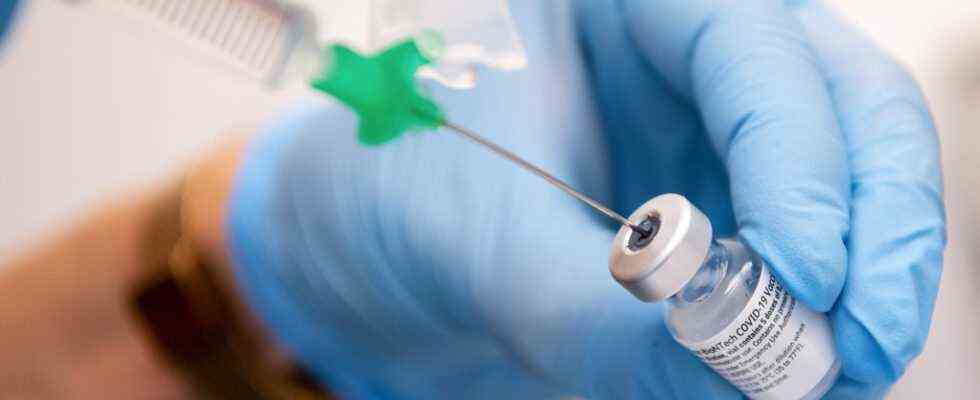Status: 29.06.2021 5:38 p.m.
A US study suggests that BioNTech / Pfizer’s vaccine could protect against the coronavirus for a long time. B memory cells, which are important for the immune reaction, were still detected three months after the vaccination.
BioNTech / Pfizer’s vaccine appears to trigger a relatively long-lasting, strong immune response. US doctors found so-called B memory cells of the immune system in vaccinated persons three months after the second dose, as they are in the Journal “Nature” to report. “That shows a really robust immune response,” said co-director Rachel Presti of the Washington University School of Medicine in St. Louis.
Result still open for vaccination effect
Carsten Watzl from the Leibniz Institute for Labor Research at TU Dortmund University (IfADo) agrees with this assessment. “That is very gratifying. But whether and to what extent a long-term immunity can be derived from it is open,” says the immunologist, who was not involved in the work, with a view to the actual protective effect of the vaccination.
It is known that the mRNA vaccinations reliably protect against Covid-19 for at least six months. However, it is unclear how long the protection lasts beyond that. In order to clarify the immunological processes, the team led by the infectiologist Presti and the immunologist Ali Ellebedy examined healthy people after the two vaccine doses given three weeks apart.
In the weeks after the vaccinations, the researchers took samples from people several times from lymph nodes in the neighboring armpit. They examined these for so-called germinal centers: They form the B memory cells of the body’s defenses and quickly build up a targeted defense reaction in the event of an infection. “Germ centers are the key to a permanent protective immune reaction. This is where our immune memory is formed,” explains Ellebedy.
B cells after twelve weeks
The researchers analyzed samples from ten participants that were taken twelve weeks after the second vaccination dose. In eight of them they found germ centers with B cells targeting the pathogen, as they report in the journal “Nature”. “That’s a good sign,” says Watzl. “The study offers a unique insight into the processes in the lymph nodes.”
In addition, the researchers repeatedly analyzed blood samples from 41 vaccinated people, eight of whom had previously suffered a Sars-CoV-2 infection. The antibody concentration generally peaked one week after the second vaccination and the antibodies were effective against all three corona variants examined: an original type, the alpha variant discovered in Great Britain and the beta variant found in South Africa. The delta variant played no role in the study.
Those vaccinated who had previously been infected with the pathogen had even higher values than the other participants. “If you’ve been infected before and are then vaccinated, the antibody levels get a boost,” explains co-author Jane O’Halloran. “The vaccination clearly has an additional benefit, so we recommend it to people who have had Covid-19 as well.”
Moderna shows immune response at Delta
With regard to the Delta variant, the US pharmaceutical company Moderna reports that its vaccine also shows an immune response against this variant. Laboratory tests with blood from vaccinated people have also shown the effect in several other variants, the company announced in Cambridge. There was only a “slight reduction in the neutralizing titre” at Delta. The titers indicate how well one is protected from infection.
The studies were based on blood samples from eight participants taken one week after the second dose of vaccine. However, the results of the Moderna vaccine have not yet been checked by other scientists. A detectable immune response in a vaccinated person is not necessarily synonymous with actual protection against infection.

